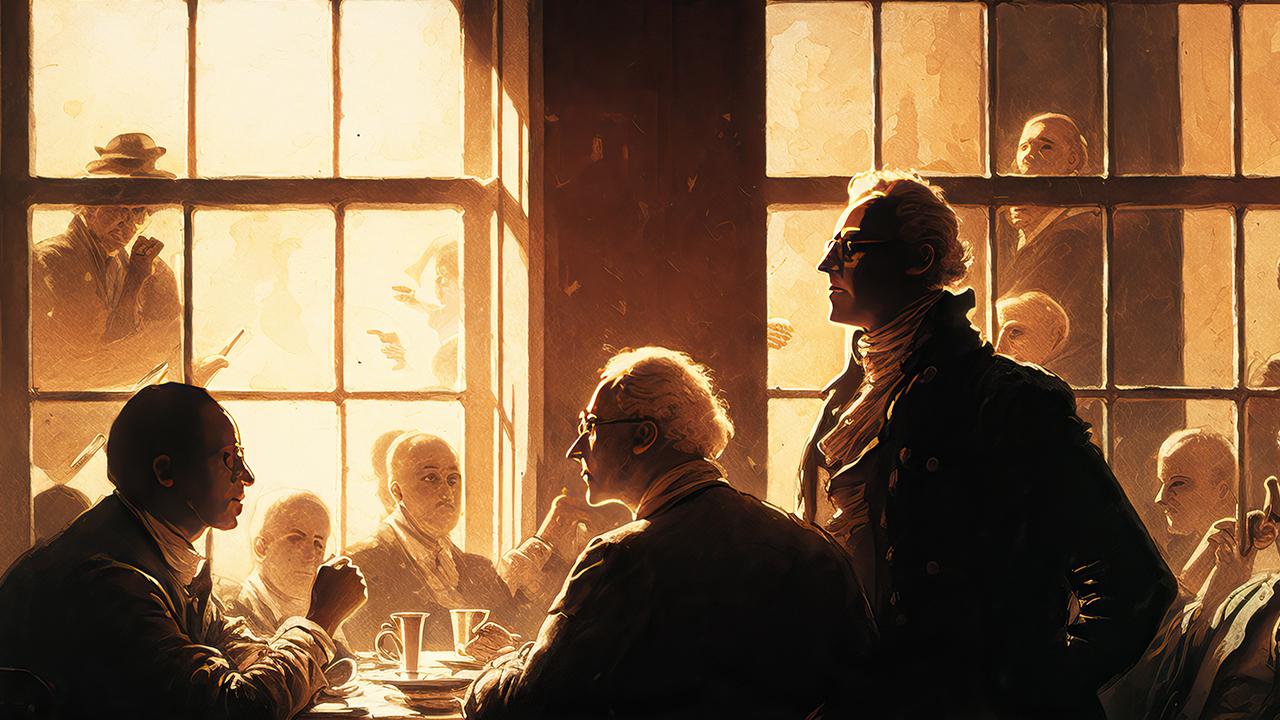
This country and this people seem to have been made for each other, and it appears as if it was the design of Providence that an inheritance so proper and convenient for a band of brethren, united to each other by the strongest ties, should never be split into a number of unsocial, jealous, and alien sovereignties. –John Jay, Founding Father and author of Federalist No. 2
Our ongoing series on The Federalist Papers has explored many of the key concerns addressed in the 85 essays and articles written by three of our Founding Fathers, Alexander Hamilton, John Jay, and James Madison. In urging the thirteen states to ratify the Constitution, the authors enumerated the moral and spiritual virtues of a faithful federal government that would bind those who fought for liberty against the British Crown in a continuing common cause and shared destiny. But there were practical reasons for a central government, too — perhaps most importantly, to guarantee security to its people.
Indeed, history shows that, in addition to trade, security is why people willingly enter into associations with others to form communities. A network of families is better equipped to defend life, property, and liberty better than a single family. And along those lines, in Federalist No. 2, Jay argued that a federal government is better suited than the individual states to conduct relations with foreign nations. A federal government is not only more capable of waging war than smaller state governments but is also better designed to conduct diplomacy.
Jay and the Founders were primarily worried about the British and the Spanish, world powers with territories in the Americas that bordered some of the newly independent states.
“The bordering States,” wrote Jay, “will be those who, under the impulse of sudden irritation, and a quick sense of apparent interest or injury, will be most likely, by direct violence, to excite war with these nations; and nothing can so effectually obviate that danger as a national government, whose wisdom and prudence will not be diminished by the passions which actuate the parties immediately interested.”
In other words, a federal government comprising states not directly affected by the actions of foreign powers would be better able to resolve potential conflicts peacefully.
But to fully understand what Jay means, let’s use the family analogy again and consider the Hatfields and McCoys, two famously feuding West Virginia clans. Imagine if the Hatfields had formed an alliance with, say, the Browns, and the McCoys with the Smiths. Neither the Browns nor the Smiths would eagerly enter a conflict on account of the longstanding dispute between their allies. To avoid shedding their own blood on someone else’s behalf, they’d be inclined to promote peaceful means to resolve the issue. Further, because alliances raise the cost of conflict — adversaries understand that they are fighting not just one entity but rather an assembly — the parties are more likely to decide against conflict.
Another advantage to establishing a capable federal government, according to Jay, is that it would draw the best talent from around the thirteen states, providing a larger pool of able statesmen. As a result, writes Jay, “the administration, the political counsels, and the judicial decisions of the national government will be more wise, systematical, and judicious than those of individual States, and consequently more satisfactory with respect to other nations, as well as more safe with respect to us.”
Americans today have reason to question this piece of Jay’s reasoning. The current government’s foreign adventures, in particular, the money and arms the White House has sent to Ukraine with the support of Republican and Democratic officials alike, show little signs of foreign policy wisdom.
Nonetheless, even as the same government treats half the citizens of America as if they were hostile actors, the fact is that we need real statesmen, for there are foreign powers around the world that wish America harm. A strong foreign policy, based on the principles set down by the Founding Fathers, is a crucial foundation of our peace and prosperity.







